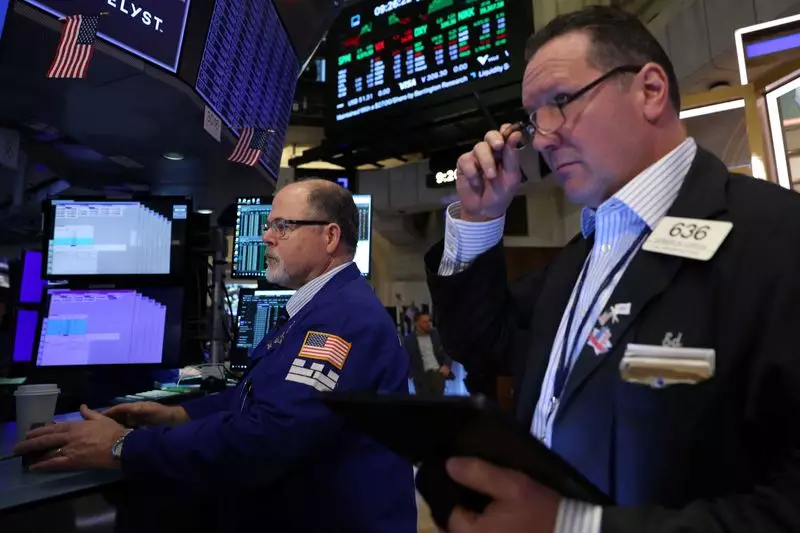As the trading day unfolds, U.S. stock index futures show a slight increase, reflecting a cautious optimism among investors. Early morning reports indicate that Dow E-minis have risen by 85 points (0.20%), S&P 500 E-minis by 16.25 points (0.27%), and Nasdaq 100 E-minis by 85.25 points (0.40%). This mild uptick comes on the heels of a rocky start to the new year, where the major indices have struggled to maintain early gains, concluding Thursday’s sessions with notable declines. Historically, the markets often buoy themselves through the close of December into January, making the current trend a point of concern for market watchers.
The bleak performance of the major indices signals an unsettled investor sentiment. The S&P 500 and Dow are both tracking for weekly losses exceeding 1%, while the tech-heavy Nasdaq has faced an even steeper decline approaching 2%. These downward movements raise alarms among investors who have enjoyed a bullish market for over two years, especially as technology stocks—the market’s key drivers—suffered disproportionately during this downturn.
The incoming presidential administration under Donald Trump offers a complex backdrop for market speculation. With a Republican majority in Congress, the anticipated policy changes loom large, heightening uncertainty in financial circles. While Trump’s ambitious proposals to cut corporate taxes, deregulate key industries, and impose protectionist tariffs could potentially enhance corporate earnings and stimulate economic expansion, they also pose risks of driving inflation and complicating the Federal Reserve’s monetary policy landscape.
As the newly elected Congress convenes for its inaugural session, market participants keenly await Trump’s inauguration on January 20. There is a palpable tension between the potential for significant fiscal stimulus against concerns for tightened monetary conditions, as evidenced by the current yield on the 10-year Treasury note hovering around 4.5%. Furthermore, the outlook for interest rates remains a critical concern. Federal Reserve observers predict a possible reduction in rates by around 50 basis points in the current year, contingent on the ongoing positive economic indicators.
Today, market movers are also focused on the Institute for Supply Management’s (ISM) manufacturing report for December, slated for release later in the day. This report will serve as a barometer of economic health, providing insights that could influence investor sentiment and further rate discussions by the Fed. Additionally, comments from Richmond Fed President Thomas Barkin regarding the economic outlook could sway market perceptions amid this week’s activities.
Concerns over high equity valuations echo through trading floors, leading many analysts to caution against overzealous optimism. Yet, several brokerage firms remain bullish, forecasting continued gains for U.S. equities, bolstered predominantly by robust corporate earnings, which will soon be tested with the release of quarterly financial results later this month.
In pre-market trading, notable movements included Tesla, whose shares experienced a rebound of 1.1% following a stark decline of over 6% due to disappointing quarterly delivery figures. Conversely, U.S. Steel faced an 8.2% drop following reports that President Biden intends to block a significant merger involving Nippon Steel, showcasing the intricate relationship between policy decisions and stock performance.
Additionally, Block Holdings’ shares climbed by 2.8% after Raymond James upgraded their rating, marking a positive shift for that company. Investors are also poised to analyze the December automobile sales figures, which are expected to provide further clarity on consumer spending trends during the holiday season.
As the market adjusts to the potential impact of new leadership, trading volumes are anticipated to be on the lighter side, a reflection of investor caution following the New Year’s holiday. With the complex interplay of factors at play—political changes, economic indicators, and corporate performance—stakeholders are advised to navigate this fluctuating environment with prudence.

